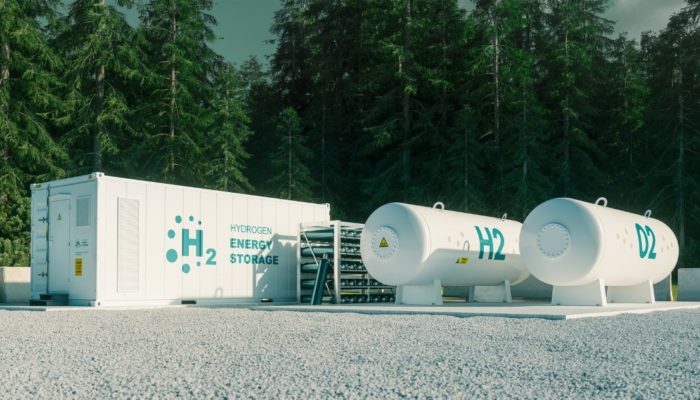The hydrogen economy – Decarbonising the final 20%



insight
Investment Companies
“Edison is the go-to for a new investor to get full understanding of the investment case and business. Edison’s distribution reaches investors that we want to connect with directly.”







Decarbonising the final 20%
At least 20 countries, collectively representing around 70% of global GDP, are proposing hydrogen strategies or roadmaps as key elements of their decarbonisation plans. This report identifies the sectors where we see the biggest opportunities for hydrogen: industrial processes, heating, fuel cell buses and trucks (not passenger cars), grid and back-up power generation in areas with strict restrictions on emissions and materials-handling equipment. It also identifies the listed companies that are likely to benefit.
You might be interested in:
Racing Covids Capital Chasm report >
Gold report >
AMD emerging therapies report>
‘Net zero’ targets cannot be achieved, in our view, without green hydrogen. While ever cheaper electricity from renewables combined with battery storage looks set to address large swathes of the transport and power sectors, important gaps remain. Hydrogen’s high energy to mass ratio and low losses during storage and transportation makes it suitable for addressing these gaps. Recently published forecasts from the EU, the Hydrogen Council and Bloomberg New Energy Finance (BNEF) suggest hydrogen could grow from 2% of the global energy mix in 2018 to 13–24% by 2050, a c 8% CAGR at the mid-point.
Hydrogen is critical for replacing coal and gas in fossil-fuel intensive industrial processes such as steelmaking. By storing the excess energy generated by renewables until it is needed, hydrogen can help address intermittency in the power sector and provides a potential path for decarbonising heating. Hydrogen’s high energy to mass ratio makes it particularly suitable for heavy-duty, long-distance road freight, maritime and aviation applications.
Investment in hydrogen technology and capacity has accelerated in the last year, analysts have lifted long-term forecasts and share prices have soared. Yet hydrogen has a long history of not delivering on its potential. Historically its role has been limited by high production costs and the need for new and adapted infrastructure to support distribution and storage. Falling renewable costs are addressing the price premium for green hydrogen, but governments will also need to provide investment and implement policies that explicitly encourage hydrogen adoption and deliver the scale required to drive down costs.
This report profiles 17 companies that look set to gain from growth in hydrogen demand. Suppliers of electrolysers and fuel cells such as Ballard Power Systems, Ceres Power, ITM Power and Plug Power appear particularly well positioned but other parts of the hydrogen supply chain will also benefit. While most companies profiled do not depend on an acceleration in market growth to be viable, most of these are at an early stage of revenue development and few are consistently profitable. Therefore significant, potentially highly dilutive, additional funding may be required. Equally, those that establish a technology leadership could prove highly attractive acquisition targets for more established industry players.
Get access to the very latest content matched to your personal investment style.

This website uses cookies so that we can provide you with the best user experience possible. Cookie information is stored in your browser and performs functions such as recognising you when you return to our website and helping us understand which section of the website you find more interesting and useful. See our Cookie Policy for more information.
These cookies are used to deliver our website and content. Strictly necessary cookies relate to our hosting environment, and functional cookies are used to facilitate social logins, social sharing and rich-media content embeds.
Advertising Cookies collect information about your browsing habits such as the pages you visit and links you follow. These audience insights are used to make our website more relevant.
Please enable Strictly Necessary Cookies first so that we can save your preferences!
Performance Cookies collect anonymous information designed to help us improve the site and respond to the needs of our audiences. We use this information to make our site faster, more relevant and improve the navigation for all users.
Please enable Strictly Necessary Cookies first so that we can save your preferences!